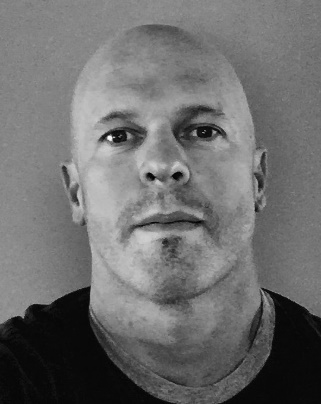By Tristan Marks
NewsNow
“There may be no more dangerous job in the world these days than being an undercover.”
This quote is as true today as it was when NBC reporter Tom Brokaw said it on-air in 1990.
Undercover, a new book from Criminology professor, true crime columnist and Grimsby resident Stephen Metelsky demonstrates this by sharing the stories of undercover cops (UCs) in their own words.

These accounts come from around the world, some even detailing undercover operations that took place right here in Niagara and across Southern Ontario.
Metelsky said he wanted his book to give the average person a glimpse into the lives of these men and women who put their lives on the line by going undercover into dangerous operations.
“These people don’t do this for extra pay, they do it because they volunteer for it,” Metelsky said. “Many times these operators are leaving behind their families, their kids for months.”
Metelsky writes from experience in this.
Although today he teaches at Mohawk College and Queens University, Metelsky has been part of undercover operations in the past, both as a UC and as a handler whose job was to keep operatives safe.
“I relayed some of my experiences, but this book isn’t about me,” he explained. “My career was a little like a hockey farm team, but the folks I talk about in my book were definitely in the big leagues.”
Using connections from his past life in law enforcement, Metelsky was able to reach out to veteran UCs to get their story in their own words.
Metelsky said that readers may recognize some names and cases that he featured in his book, such as Jay Dobyns.
Dobyns infiltrated the Hell’s Angels biker gang as part of US Bureau of Alcohol, Tobacco and Firearms back in the early 2000s.
His story has been featured in a number of documentary series.
Other stories, as Metelsky put it “have never graced the pages of a newspaper of television.
Karen Moffatt has one of these stories. She was one of the first women in Ontario to be trained as a UC.
In the 1980s, Moffatt infiltrated the Paradise Riders outlaw biker gang as part of an operation for the OPP.
In the midst of this operation, one of the gang’s bikers was found murdered in a burning station wagon on the QEW, an escalation in a violent turf war.
Originally Moffatt’s handlers wanted her pulled out for her safety, but decided to keep her in with orders to gather leads and information on the murder.
She had to stay undercover with no wires in an era before cell phones.
“If they even suspected she was a cop, she would be dead,” Metelsky said.
He explained that the decision to send Moffatt into her mission without a wire, ironically, saved her life.
“When she first went to the Paradise Riders’ clubhouse she noticed that there was a large antenna on its roof,” Metelsky said.
This antenna, as it turned out, was designed to detect outgoing signals and would have definitely picked up a wire.
“She said her heart dropped when she learned this,” Metelsky said. “If she had a wire going into the club house, there was no way she would have come back out .”
This theme of ever-present danger threads throughout the book. In stories like Moffatt’s and Dobyns’ the danger doesn’t just end after their op ends.
Sometimes UCs don’t make it out.
Metelsky dedicated an entire chapter to William McIntyre, an Oakville officer who was murdered undercover on April 1, 1991.
Thirty years later, his case remains unsolved and there is still a $100,000 reward for information on his murder, although this will expire April 1 of this year.
“For UCs, the paranoia is real. Violence is always around the corner,” Metelsky said.
For more information on Undercover, including a link to purchase a physical copy online visit Stephen Metelsky’s website UnderworldStories.com.
Visitors can also find links to his Cold Case column, featured in the online publication, Blue Line Magazine.
Additionally, Metelsky will be part of the Grimsby Public Library’s online authors talk on April 26 at 7 p.m.

